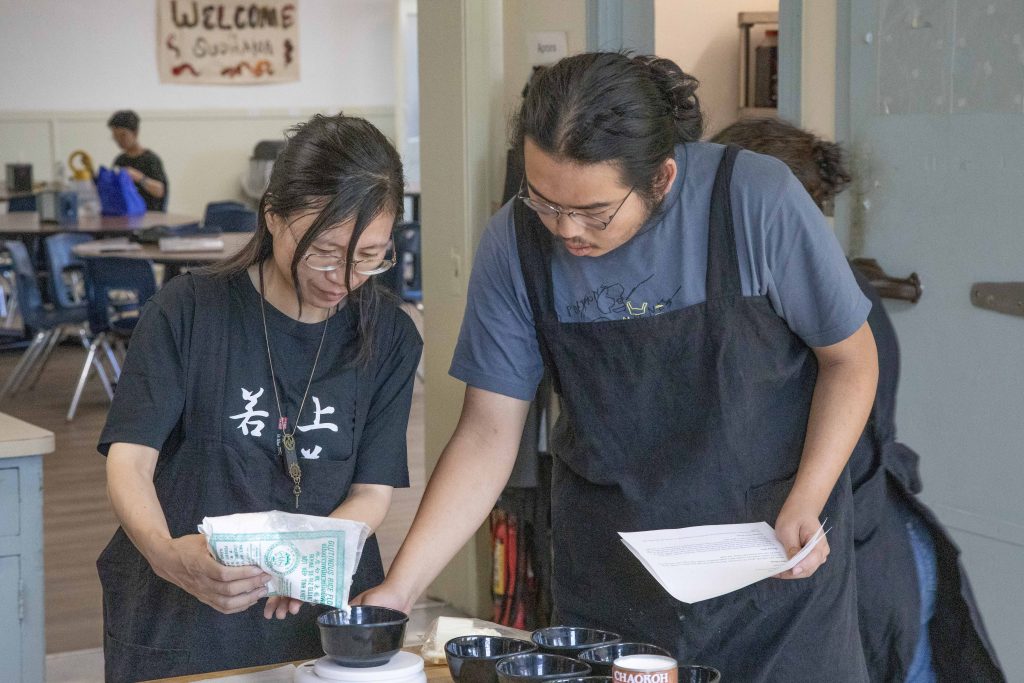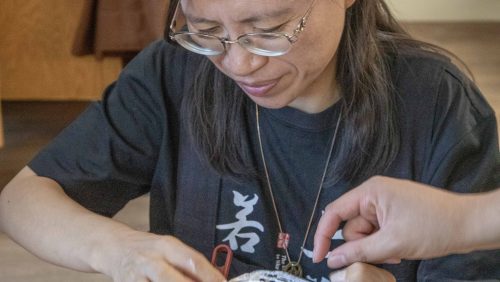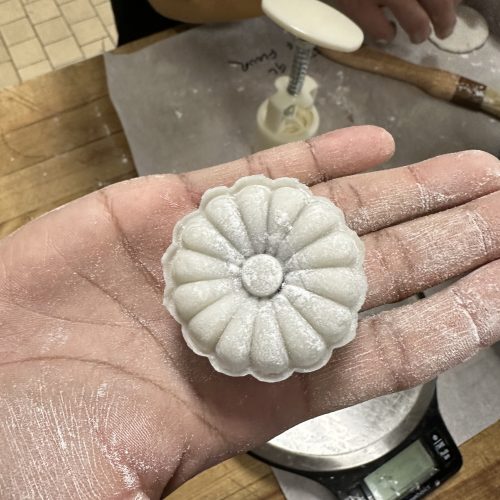Classes
Shojin Culinary Arts Certificate Program
The Shojin Culinary Arts Certificate Program offers a 1-year integrated immersion in plant-based cuisine, founded on the principles of Shojin Ryori—traditional Japanese temple cooking.
The following course descriptions outline basic course requirements only. More detailed information regarding elective coursework and other course requirements will be available during individual consultations. The requirements need to be completed within two consecutive semesters. The program’s objective is to give students a framework from which they develop skills in plant-based cooking techniques and deepen their understanding of Shojin Ryori principles and philosophy.
Courses
Fall Semester (13 Units; 525 Hours)
CULN11: Intro to the Kitchen: Basics, Practices and Philosophy (1.0 unit; 15 hours)
Explore foundational knife techniques and kitchen skills, mindful preparation methods, and the core principles of Shojin philosophy—where food becomes both sustenance and spiritual practice.
CULN21: Safety, Sanitation, Cooking Approaches and Culinary Math (1.0 unit; 15 hours)
Learn essential safety and sanitation protocols alongside core cooking apporaches and basic culinary math. This course emphasizes precision, discipline, and care in the kitchen.
CULN31: Plant-Forward Fundamentals (2.0 units; 90 hours)
Develop a deep understanding of plant-based ingredients and preparation techniques. Emphasis is placed on seasonal, local produce and the Shojin principle of respect for life in all forms.
CULN41: Shojin Cooking Techniques I (2.0 units; 90 hours)
Delve into traditional Shojin methods including enhanced knife skills, dashi-making, and root-to-stem cooking. The course centers around harmony, simplicity, and transformation.
CULN51: Shojin Cooking Techniques II (2.0 units; 90 hours)
Advance your Shojin practice with more complex preparations such as seasonal layering, fermentation, and multi-course kaiseki-style menus that elevate simplicity into sacred ritual.
CULN61: The Global Marketplace (2.0 units; 90 hours)
Study global plant-based cuisines through the lens of Shojin values. Explore how international ingredients and traditions can honor local sustainability and mindful cooking.
CULN71: Culinary Laboratory I (3.0 units; 135 hours)
Apply skills from the semester in a professional, immersive environment. Students create seasonal menus and prepare dishes with attention to detail, spiritual balance, with a service orientation.

Spring Semester (13 Units; 525 Hours)
CULN22: Nutrition and Wellness: East Meets West (1.0 unit; 15 hours)
Examine holistic nutrition through both modern Western science and Eastern wellness traditions. Learn to craft meals that promote physical, mental, and spiritual well-being.
CULN32: Culinary Science and Sensory Analysis (1.0 unit; 15 hours)
Gain insight into the science of taste, texture, and transformation. Practice sensory awareness and analysis to heighten perception and deepen intention in cooking.
CULN42: Introduction to Baking and Pastry (2.0 units; 90 hours)
Master the basics of plant-based baking and pastry with a Shojin ethos. Focus on balance, natural sweeteners, and basic techniques for cookies, quick breads and traditional confections.
CULN52: Shojin Cooking Techniques III (2.0 units; 90 hours)
Push the boundaries of plant-based culinary practice with plant-based protein fabrication, basic pickling, and temple cuisine techniques from advanced Shojin training.
CULN62: The Essential Vegan Desserts (2.0 units; 90 hours)
Create refined, wholesome desserts that reflect Shojin values—light, clean, and free from excess. Emphasizes texture, balance, and seasonality.
CULN72: Advanced Culinary Techniques (2.0 units; 90 hours)
Further refine Shojin technique with seasonal artistry, ceremonial presentation, and the aesthetics of wabi-sabi in composition and plating.
CULN82: Culinary Laboratory II (3.0 units; 135 hours)
A culminating hands-on course emphasizing leadership, menu design, and full meal execution in a professional kitchen. Students demonstrate mastery of technique and philosophy.

